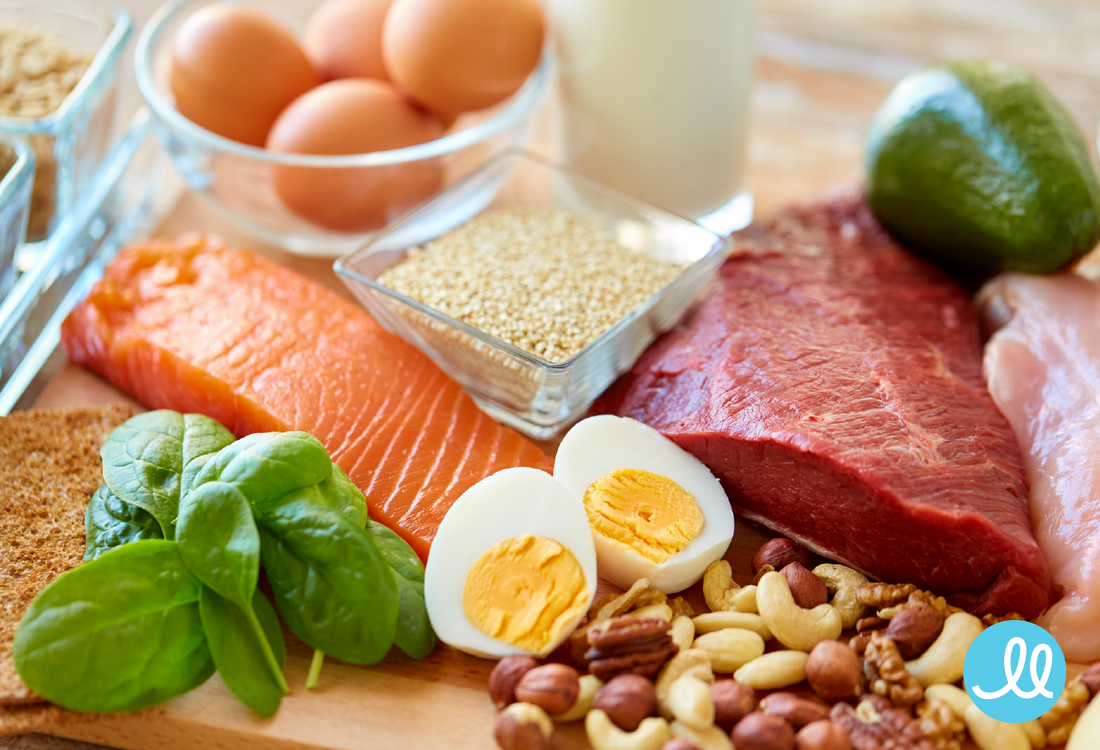Whether you’re a meat-eater or a vegan/vegetarian, protein is still on the menu and is important to consume regularly. But won’t too much protein hinder your fat loss? And what about quantities, don’t you need more to gain muscle? So many questions about protein and the myths lying around it, and I have the answers!
Introducing Women's protein myths debunked...
If I eat extra, will I get more gains?
While it’s true that your muscles, hair, and nails (to name a few) rely on protein consumption to function correctly and grow strong, overdoing it on protein may not be the answer to becoming bigger and better. Factors of muscle growth include other aspects like your diet as a whole, if you’re strength training, your age, and even your gender. Yes, adequate protein intake will support healthy muscle growth, but it’s better to concentrate on your health as a whole versus relying on a higher protein intake.
The USDA suggests that the average, non-athletic adult consumes .8 – 1.2 grams of protein per every 2 pounds of body weight. If you exercise around 3 days a week and have a fairly active work life, you’d want to eat 1.2 – 2 grams of protein per 2 pounds of body weight. For our high-intensity athletes who are seeking endurance or strength benefits, consuming 1.5 – 2.2 grams per 2.1 pounds of body weight is an adequate amount.
I’ll use myself as an example of how to calculate. I weigh 142 pounds and would want to consume at least 2.1 grams of protein for every 2 pounds I weigh.
142 (lbs)
_______ = 71 x 2.1 (grams of protein) = 149.1 grams of protein per day
2 (lbs)
Keep in mind, protein also has a very active role in your body. Not all protein is going straight to your muscles. Protein plays a vital role in keeping your blood healthy and ready to fight illness, it helps regulate your body’s natural production of humane growth hormone… protein is busy! Consume it in recommended amounts with an overall positive nutrition plan and exercise regime and you’ll see the benefits of protein you’ve been looking for without having to overdo it.
Do I need to limit my protein intake to lose weight?
The simple answer is no, do the opposite! Protein is the most satiating of the macronutrients, which means it’s going to make you feel full and keep you that way the longest. Think about it this way, if you sat down to eat 8 ounces of chicken, you may be there for a while. But one serving size of Panda Express fried rice is 8 ounces, and that disappears faster than you want every time!
Studies have shown that adults who consume more protein tend to lower their overall amount of calories (remember that word ‘satiety’). Weight loss is simply a balance of the energy (calories) you consume versus the calories you burn by exercising, walking to your car, playing with your kids, and even just breathing and existing. Overall, consuming protein alone will not contribute to your weight loss or gain, rather consuming fewer calories than you use in a day alongside a positive nutrition and exercise plan.
Can I only get protein from animal sources?
DEFINITELY NOT! Don’t be tricked into thinking the only way you’re going to build muscle is through animal protein. It’s true, plant protein lacks the amino acid leucine, which is crucial in muscle building. However, proper supplementation with BCAAs can solve that issue. Protein derived from plants is powerful and comes with their very own benefits like being higher in fiber, containing fewer calories and fats than animal proteins.
It is worth noting that animal proteins do come with their benefits. Although we mentioned the avoidance of a higher fat content as a positive, it can also be a negative. Your body does need some fats, and diets lacking animal meats tend to see lower levels of the important fats that create your brain and eye tissue. Animal-free diets will also see a lack of iron intake. I recommend adding plenty of leafy greens to each meal, chia and flax seeds, and nuts like walnuts to your diet to supplement the loss of healthy fats and iron.
After going over some common protein myths, it’s time to calculate your own intake needs.

